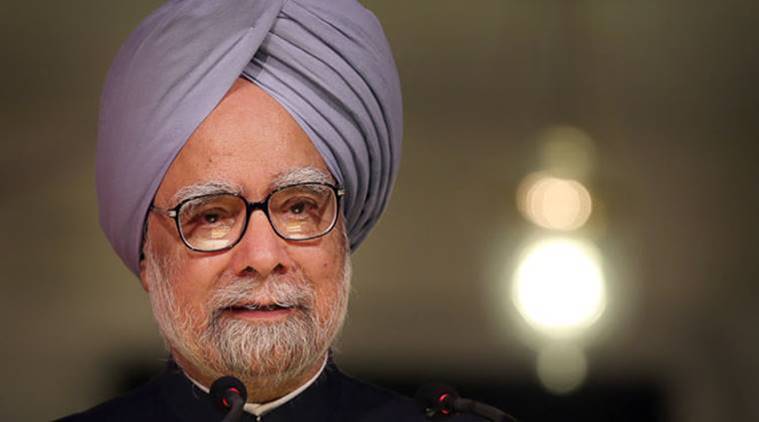
The recent publication by Oxford University Press of five volumes of writings and speeches by Manmohan Singh, and the release of the film, The Accidental Prime Minister, takes my mind back to a conversation, nearly eight years ago, with the accidental prime minister.
On March 11, 2011, I posted an idea on the Ministry of Finance website on controlling one class of corruption — harassment bribery. This refers to cases where a person has to pay a bribe to get something she is entitled to, such as, when after passing a driving test, she is asked to give cash before she is given the licence, or, after paying all taxes, a small businessman is harassed by the tax collector into paying a bribe.
It struck me that one reason harassment bribes were rampant in India was the fact that the Prevention of Corruption Act, 1988 holds both the giver and the taker of bribe equally liable for punishment. This meant that the bribe giver would typically not admit in court to having given a bribe, and this created the comfort zone that encouraged government officials to ask for bribes with alacrity. Amend the law by making bribe-giving legal while heaping the punishment on the bribe-taker, and the incidence of bribery would go down.
That was the idea which got me excited; and, being quite new to government, I wrote it up, and posted it on the ministry’s website. Furore broke out of a kind I had never experienced. There were newspaper articles attacking the proposal. There would be supportive articles in some newspapers and magazines, and also some endorsement from a few thinking corporate leaders, but those came later.
On Saturday evening, April 23, just as I thought the controversy was dying down, I got a call from Barkha Dutt, inviting me to appear on her then television show, ‘We the People’, where, she told me, I could explain my idea and then there would be a discussion, which in Indian television jargon means a screaming match.
I was in a dilemma. In my short time in government, I had discovered that I was comfortable with and even enjoyed participating in these policy “debates”. However, I knew I had caused the government a lot of grief with the posting of my proposal. A few days earlier, D Raja, the Communist Party Member of Parliament (for whom I have a lot of respect) had written to the prime minister, with a vitriolic complaint about my “immoral” idea. I had half expected to be asked by the finance minister, Pranab Mukherjee, or the prime minister to take the paper down from the website. To their credit, they made no such request. Hesitating whether I should stir the pot again, I decided to do what I rarely did: Ask their advice on whether or not I should appear on Barkha’s show.
Mukherjee was away in Vietnam. So I called the prime minister’s residence and left a message. Ten minutes later, he called back. This was the first time I was talking to him about my bribery paper, though we had exchanged notes and messages as the controversy brewed.
He quickly got to the point. He had received complaints about my idea and had read the newspaper reports, though he had not read my original paper. He went on to add that he did not agree with me. I tried to defend my idea by suggesting that he was probably misled by the secondary sources. But he was adamant; he disagreed with my proposal. I kept quiet, expecting him to say I should stay off the debate and let the idea die a natural death.
What he said next caught me by surprise. He said that, though he disagreed with my idea and it had caused him political difficulty, that did not mean I should not speak about it. The role of an adviser is to bring ideas to the table, even if they are controversial. So I should feel free to appear on TV and explain my idea. The decision, he said, was mine.
This was a remarkable instance of quiet courage. His courage was not that of the schoolyard bully that some people mistakenly think of as courage, not realising that it takes no courage to silence contrarian voices from a bully pulpit. It is much harder to allow the flourishing of ideas, even ones that contradict yours. Allowing diversity in ideas and people, having universities where students discuss and float new ideas, is what makes a nation strong, and gave India the global stature it has.
From this and several other experiences during my years in government, it became clear that Manmohan Singh, contrary to what his understated style often seemed to suggest, was a person of immense courage, backed up with clear thinking. This is what enabled him to put new ideas on the table in 1991, marking a turning point for India’s economy. This helped create an ethos in which bureaucrats and experts felt included, resulting in well-crafted policies that put India on the global stage.
Some months later, at a G-20 meeting, I recounted this story. There was quick agreement that only in advanced nations are there leaders like this, who have the courage to allow ideas they disagree with to be discussed and disseminated. India stood out as the world’s outstanding exception because of the imagination and audacity of Nehru’s endorsement of free speech. Several Indian leaders, including Atal Bihari Vajpayee, upheld this tradition, but it can be easily eroded. This is an inheritance we need to cherish and advance: The right to free speech by citizens, a critical media, the flourishing of science and literature and, what is at the root of it all, a quiet courage.